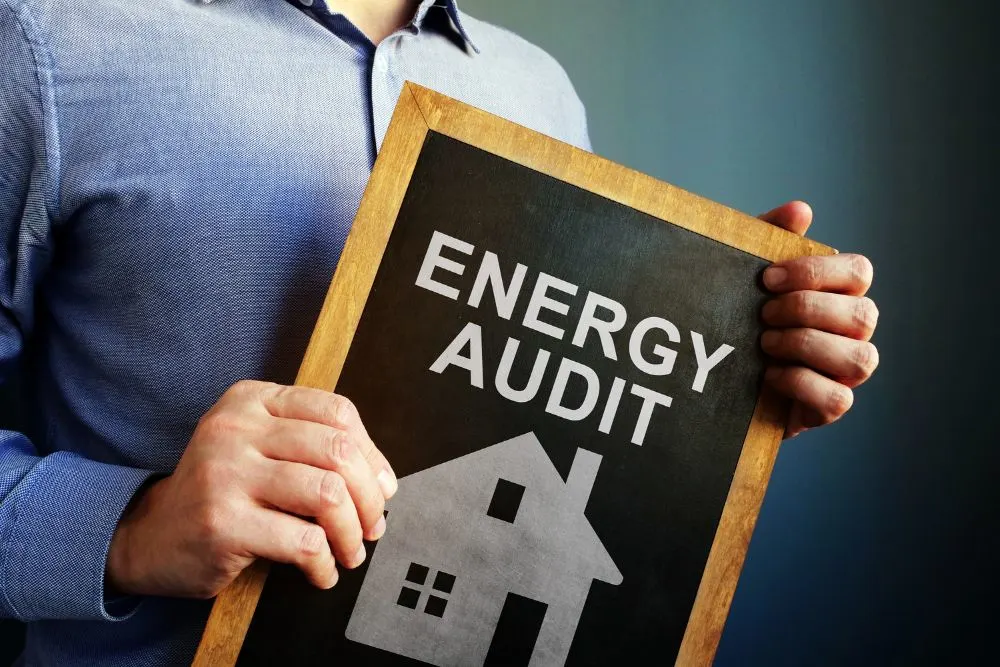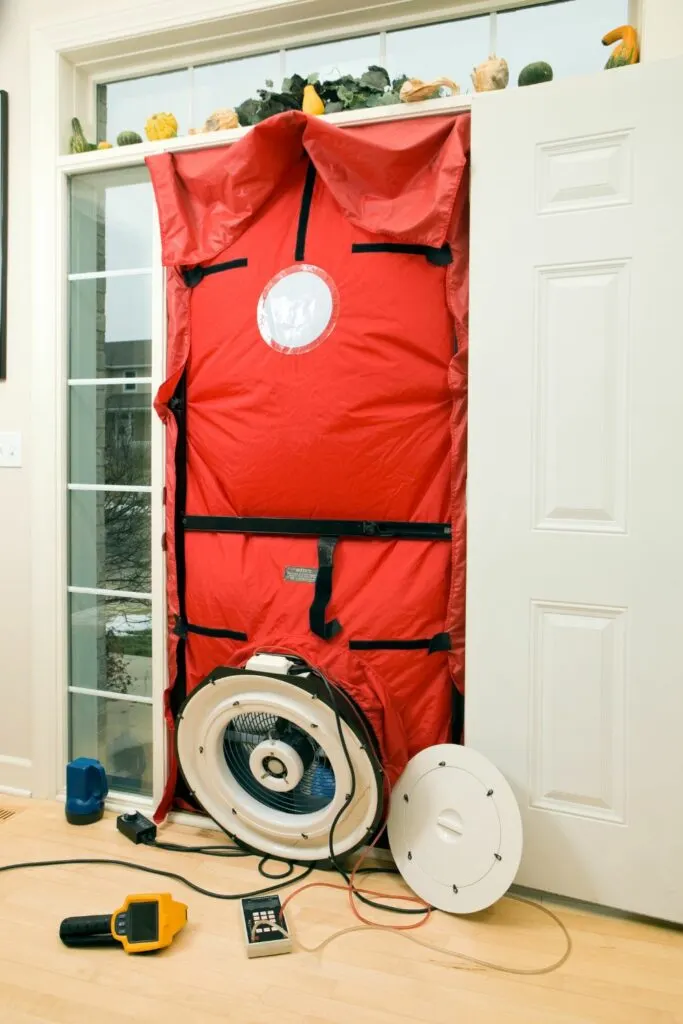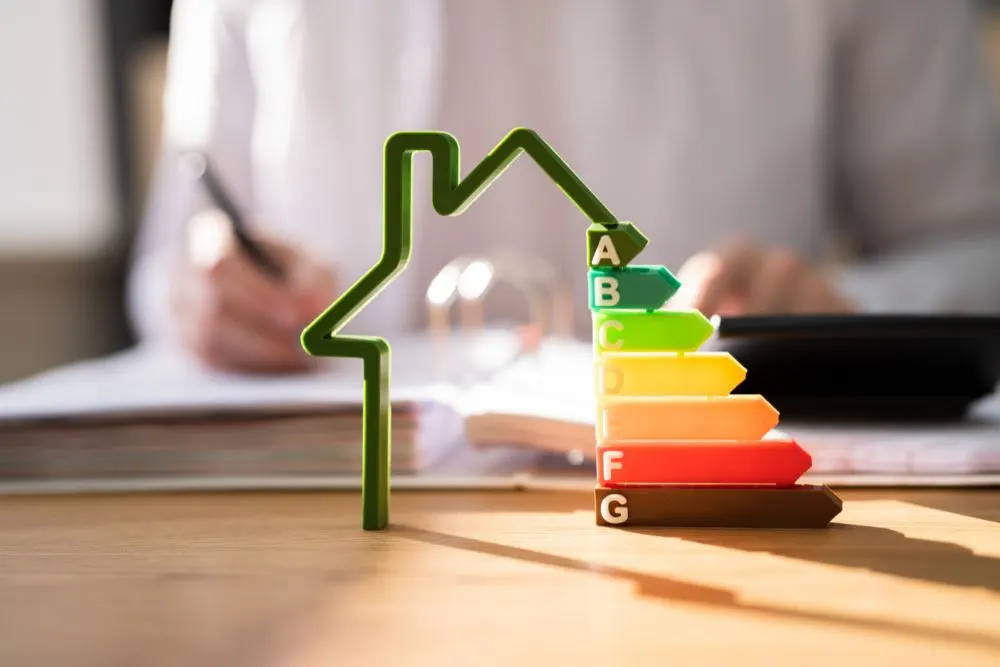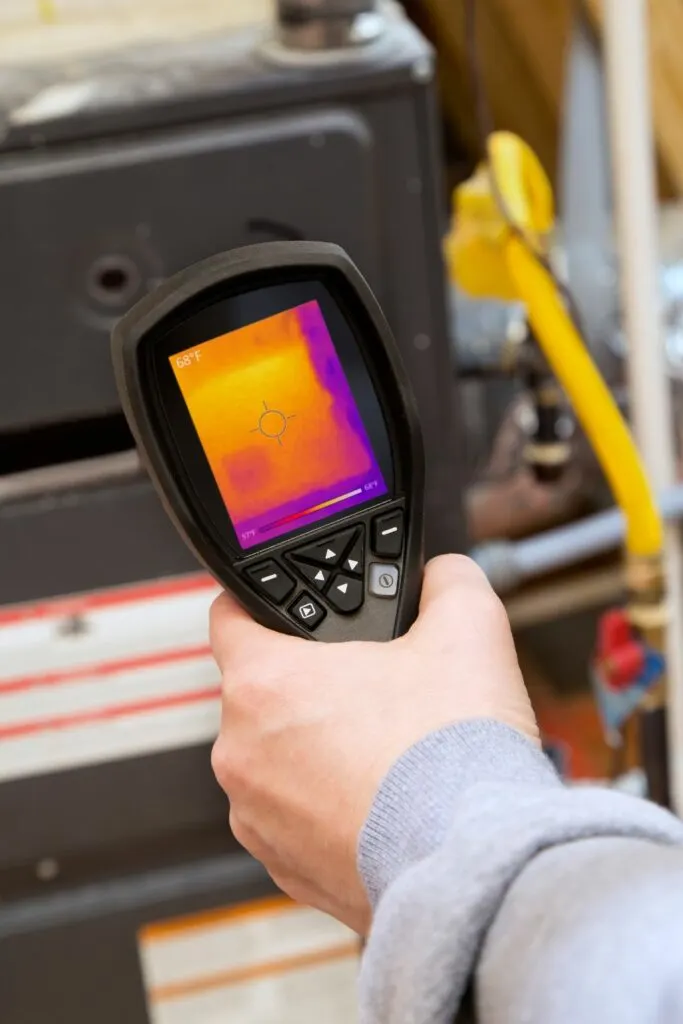Energy efficiency is becoming increasingly important as businesses seek to reduce costs and protect the environment. One way companies can achieve this is by conducting energy audits to identify areas where they can save energy and improve overall efficiency.

Starting an energy audit business can be a rewarding and lucrative opportunity for those interested in helping companies become more eco-friendly while also cutting operational expenses.
An energy audit business requires specific skills and expertise, such as assessing energy consumption in commercial and residential buildings, identifying opportunities for improvement, and recommending cost-effective solutions. Obtaining the necessary certifications and licenses, investing in the right tools and equipment, and building relationships with clients are crucial steps in establishing a successful enterprise in this growing field.
With a strong foundation in energy consulting and a commitment to delivering excellent service to clients, an energy audit business can thrive in today’s eco-conscious market. As more companies prioritize sustainability and energy efficiency, the demand for skilled energy auditors is likely to increase, presenting a valuable opportunity for entrepreneurs looking to make a positive impact in their community and beyond.

Understanding Energy Audits
Energy audits are a critical step in improving energy efficiency, reducing energy costs, and minimizing carbon emissions. By identifying areas of energy waste and evaluating the effectiveness of energy usage in a facility, energy audits can provide significant savings and promote sustainability.
Energy Audit Importance
Energy audits are essential for several reasons:
- They help identify areas of energy waste and inefficiency, providing opportunities for improvement.
- They offer a roadmap for prioritizing and implementing energy-saving projects, which can lead to significant cost savings.
- They enable businesses to reduce their carbon footprint and demonstrate a commitment to environmental stewardship.
- By improving energy efficiency, companies can enhance performance, competitiveness, and overall reputation.
Types of Energy Audits
Energy audits come in several forms, each suited to specific needs and goals:
- Preliminary Energy Audit: Also known as a walk-through audit, this type of audit includes a visual inspection of the facility to identify energy use and inefficiencies. It provides a general understanding of energy usage and suggests possible improvements to consider. Read more about preliminary energy audits.
- Detailed Energy Audit: This comprehensive audit involves detailed data gathering, assessment of energy consumption patterns, and evaluation of energy-saving opportunities. It provides a thorough analysis of energy usage and recommends specific measures to achieve energy efficiency and cost savings. Read more about detailed energy audits.

Energy Efficiency and Savings
Implementing energy-saving measures identified in an energy audit can lead to considerable reductions in energy use and costs. Some common recommendations include:
- Upgrading outdated lighting systems with energy-efficient LED or CFL lighting.
- Improving insulation and sealing gaps to minimize heat loss.
- Installing energy-efficient heating, ventilation, and air conditioning (HVAC) systems.
- Implementing energy management systems and controls.
By investing in energy efficiency, businesses can achieve immediate savings in energy costs. Additionally, they are likely to see long-term savings as energy-efficient systems generally have lower maintenance and replacement expenses.
In summary, understanding energy audits is a crucial step in starting an energy audit business. Focusing on the importance of energy audits, the various types available, and the potential energy efficiency and savings that can be achieved will help you provide valuable services and contribute to a more sustainable future.

Starting an Energy Audit Business
Research and Knowledge
Before starting an energy audit business, it’s essential to learn about the industry and the services you’ll be offering. Spend time researching different energy-auditing methods, technologies, and practices. Familiarize yourself with various energy efficiency strategies, how different buildings consume energy, and the equipment you’ll need to perform audits. Networking with other professionals in the industry and connecting with resources can help you further enhance your knowledge.
Certifications and Licenses
To become a trusted energy auditor, obtaining proper certifications and licenses is crucial. These certifications demonstrate your competency in conducting energy audits and ensure that you follow industry best practices. There are multiple certification programs available for energy auditors, such as the Building Performance Institute (BPI) and the Residential Energy Services Network (RESNET).
Business Plan and Structure
Developing a solid business plan is vital for the success of your energy audit business. Your plan should outline your target market, services you’ll provide, pricing structure, marketing strategies, and financial projections. Additionally, you should decide on the legal structure of your business, such as a sole proprietorship, partnership, or limited liability company (LLC). Forming an LLC can grant you certain tax benefits and limit your personal liability.
Insurance and Legal Requirements
Getting adequate insurance coverage is critical in protecting your energy audit business from various risks. General liability insurance can safeguard against potential accidents, while professional liability insurance can cover you in case of errors and omissions during your audits. Make sure to meet all legal requirements, such as registering for taxes, opening a business bank account, and setting up a proper accounting system. It’s advisable to consult with a legal expert to ensure you fulfill all necessary regulations.
Tools, Equipment, and Services
Essential Tools for Energy Auditors
When starting an energy audit business, it’s crucial to invest in the right tools and equipment to ensure accurate and efficient evaluations. These tools will help you identify areas of improvement and provide clients with valuable insights into their energy usage. Some essential tools for energy auditors include:
-
Blower Door: A blower door is a key piece of equipment to measure air leakage in buildings. By depressurizing a space, it helps you identify gaps and drafts, which are common sources of energy waste.
-
Infrared Camera: Infrared cameras allow you to visualize temperature variations in a building, enabling you to pinpoint thermal insulation issues, leaks, and possible moisture problems.
-
Combustion Analyzer: This tool measures the efficiency of heating systems and detects unsafe levels of carbon monoxide, ensuring that clients’ heating systems are functioning properly and safely.
Infrared Cameras and Blower Door Tests
Infrared cameras are invaluable for identifying thermal issues and insulation problems in a building. By creating a visual representation of temperature differences, they help you locate hot and cold spots, which can indicate poor insulation, air leaks, or moisture issues.
Blower door tests are essential for assessing a building’s airtightness. By creating a pressure difference between the interior and exterior of a building, a blower door system helps you identify air leaks that contribute to energy loss and discomfort for building occupants.
Both infrared cameras and blower door tests are integral components of comprehensive energy audits, which assess a building’s energy efficiency and recommend improvements related to air sealing, insulation, and heating and cooling systems.
Offering Home and Business Energy Audits
As an energy audit business owner, you can offer services for both residential and commercial clients. Home energy audits focus on identifying energy-saving opportunities for homeowners, such as upgrading insulation, improving the efficiency of heating and cooling systems, and implementing smart home automation devices.
On the other hand, business energy audits involve evaluating the energy usage of commercial buildings, such as office spaces, retail stores, and manufacturing facilities. In these cases, the goal is to optimize energy efficiency while reducing operational costs.
Offering both types of energy audits can expand your client base and diversify your services, ensuring a thriving and successful energy audit business.
Marketing and Reputation Building
Establishing a Brand
To start a successful energy audit business, it’s crucial to establish a strong brand identity. Your company name should be memorable and relevant to the industry. Consider a name that highlights your unique selling points or expertise in energy auditing. Once you have a name, design a logo and develop a consistent visual identity that conveys professionalism and trustworthiness.
In addition to visuals, your brand should have a defined mission and core values focused on helping clients save energy and money. Communicate these values in all interactions, from initial contact to delivering audit results, and it will help create a strong reputation that appeals to potential clients.
Content Marketing and Online Presence
Creating valuable content is a proven way to attract and engage potential clients. Develop a content marketing strategy that includes a variety of formats like blog posts, infographics, and videos to share energy-saving tips, case studies, and industry news. This content will not only demonstrate your expertise but also serve as a resource for potential clients seeking information about energy audits.
Optimize your content for search engines with relevant keywords to improve your search rankings and increase the chances of potential clients discovering your business. Additionally, maintain active social media profiles to share your content and engage with your target audience. This online presence will help build your reputation as a knowledgeable and trustworthy energy audit expert.
Building Client Relationships
Strong client relationships are essential to the growth and success of your energy audit business. Prioritize communication by responding promptly to inquiries or concerns, and show genuine interest in helping clients achieve their energy-saving goals. Provide exceptional service during the audit process, and follow up after the audit to ensure satisfaction and offer any needed support.
As you build your client base, ask for referrals and testimonials to use in your marketing efforts. Word-of-mouth plays a significant role in building a solid reputation within the industry. By fostering positive relationships with your clients, you can leverage their satisfaction to attract new customers and grow your business.
Remember to stay connected with past clients by sending relevant updates, industry news, or new services through email newsletters, ensuring they continue to see value in your business and maintain a positive relationship.
Finances and Pricing Strategy
Startup Costs and Financing
Starting an energy audit business requires some initial investment. Here is a breakdown of the common startup costs:
- Certifications and training courses
- Business registration and licensing fees
- Tools and equipment
- Marketing and advertising
- Vehicle expenses (if necessary)
- Office supplies and software
Explore different financing options such as small business loans and grants tailored to your industry. Strive to minimize your startup costs by purchasing only essential equipment and tools.
Pricing for Energy Audits
Create a competitive pricing strategy for your energy audit services. Consider the following factors:
- Local market rates
- Your expertise and experience
- Complexity and size of the project
- Travel expenses
Offer different pricing models to cater to different client needs, such as a flat fee for a basic energy audit or an hourly rate for more complex assignments. Offering discounts for long-term contracts may help secure recurring business.
Tax and Accounting Considerations
Proper tax and accounting practices are crucial for the success of your energy audit business. Here are a few recommendations:
- Register your business for taxes: Ensure you are registered for the appropriate federal, state, and local taxes to avoid any legal issues.
- Open a business bank account and credit card: Keep your personal and business finances separate to make accounting and tax filing easier.
- Set up accounting systems: Use accounting software or hire a professional accountant to track your income, expenses, and invoice clients. Regularly review your financial statements to make informed business decisions.
- Track deductible expenses: Keep records of all deductible expenses, such as equipment purchases, travel expenses, and marketing costs. This will help you maximize tax deductions.
Following these guidelines will help you establish a solid financial foundation for your energy audit business, while also being mindful of your costs, profits, and other necessary financial considerations.
Sustainable Practices and Two Innovative Approaches
In recent years, sustainability has become increasingly important in various industries, including the energy audit business. The focus on minimizing the environmental impact and carbon footprint of operations has led to the development of innovative approaches that not only promote energy efficiency but also contribute to a greener future. In this section, we will discuss two such innovative approaches: Integration of Solar Panels and Promoting Energy-Efficient Equipment.
Integration of Solar Panels
One way to ensure sustainability in an energy audit business is by integrating solar panels into the operations. Solar panels generate clean, renewable energy that can help offset the consumption of non-renewable resources, reducing both costs and the company’s carbon footprint. They can be installed on rooftops or as parking lot canopies to provide power for the business premises, lighting, and electric vehicle charging stations.
To enhance the effectiveness of solar panels:
- Optimize their positioning and angling to maximize sun exposure.
- Perform regular maintenance to ensure the panels are clean and in good working order.
- Partner with reputable solar energy companies to ensure quality installations.
Incorporating solar power not only elevates a business’s sustainable practices but also makes it more attractive to environmentally conscious clients.
Promoting Energy-Efficient Equipment
Another approach to sustainable practices in the energy audit business is promoting energy-efficient equipment for clients. By recommending the use of high-efficiency appliances, lighting, and HVAC systems, an energy auditor can significantly reduce the energy consumption of their clients and minimize the associated environmental impact. Some key considerations for promoting energy-efficient equipment include:
- Educating clients: Inform clients about the benefits of energy-efficient equipment, such as lower energy bills, increased longevity, and reduced carbon footprint.
- Rebates and incentives: Encourage clients to take advantage of regional incentives and rebates for purchasing energy-efficient equipment.
- Certification: Recommend equipment that has received certification from organizations such as ENERGY STAR, which ensures products meet strict energy efficiency guidelines set by the Environmental Protection Agency and Department of Energy.
By integrating solar panels and promoting energy-efficient equipment, an energy audit business can significantly contribute to sustainability efforts, minimize its environmental impact, and demonstrate a commitment to a greener future.
